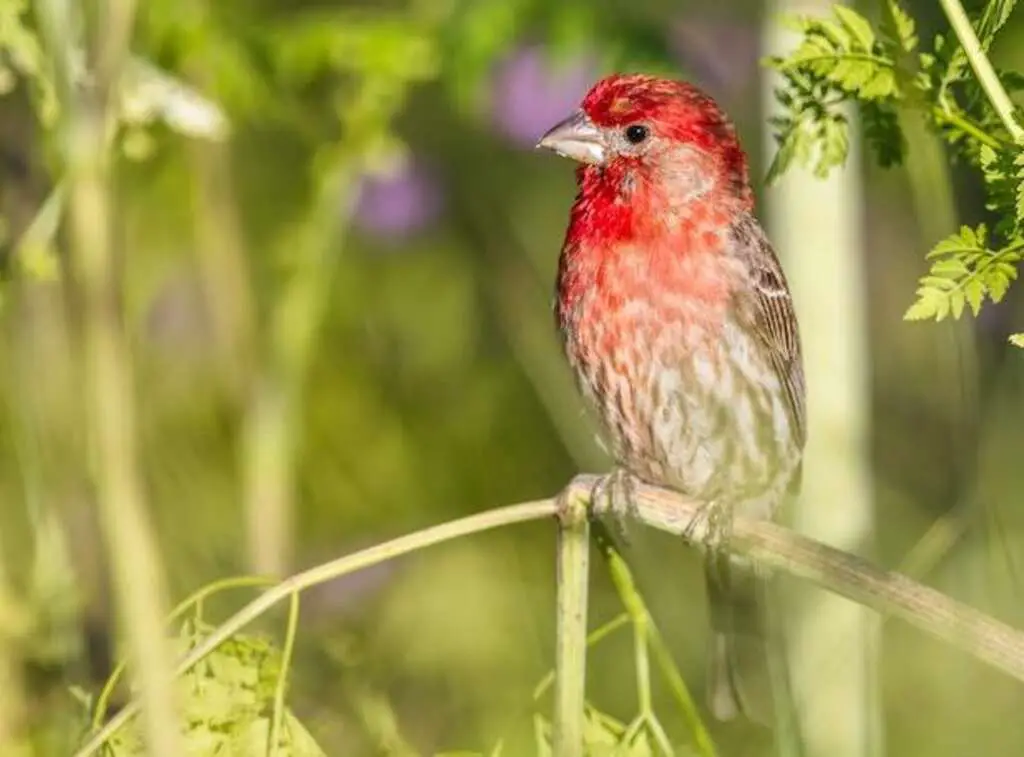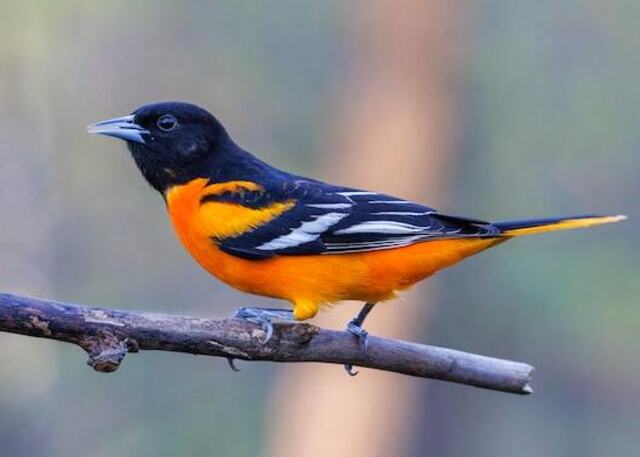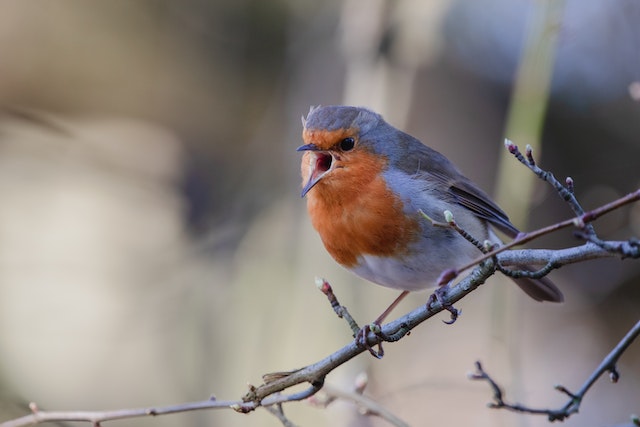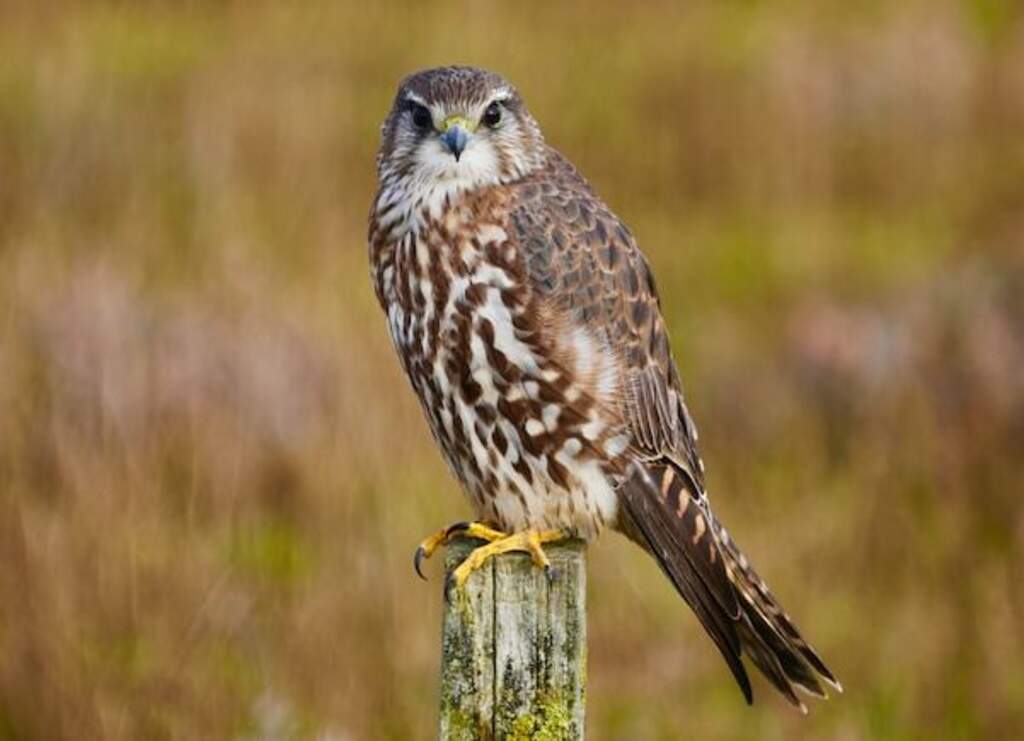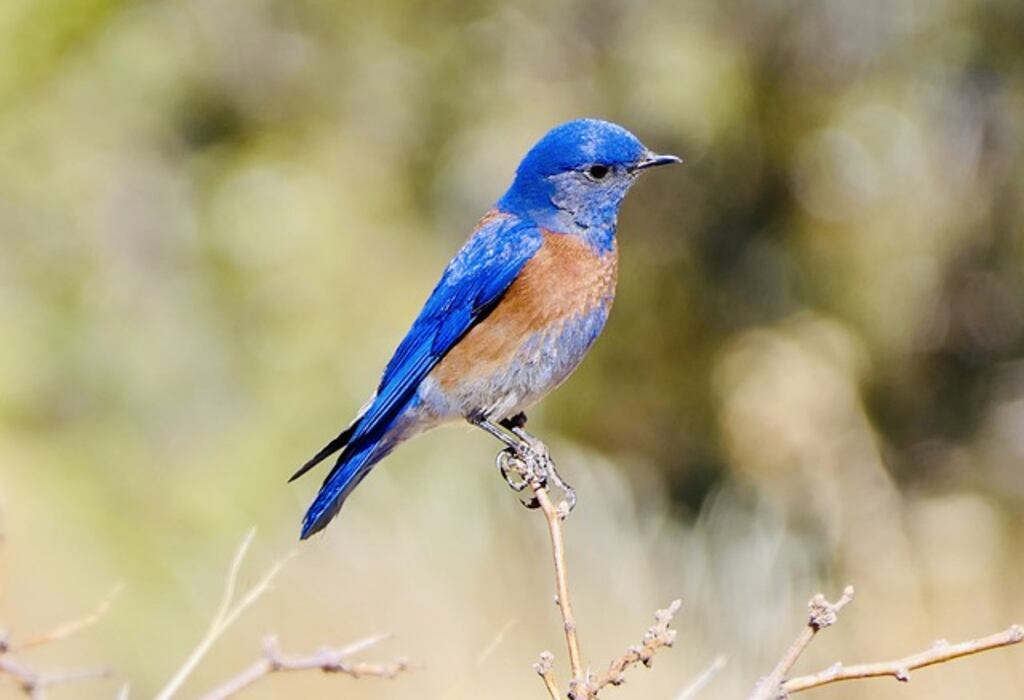Have you ever noticed your pet bird sneezing? Sneezing is a normal reflex in birds, just like it is in humans. However, sneezing can also be a sign of underlying health concerns, especially if it becomes persistent or severe.
As birds are susceptible to respiratory issues, it’s important to understand the causes of sneezing and take appropriate measures to promote bird health and well-being.
In this article, we’ll explore the bird respiratory system, common causes of sneezing in birds, allergies in birds, respiratory issues, triggers and prevention of bird sneezing, and remedies for bird sneezing.
We’ll also discuss the role of diet in bird respiratory health and provide recommendations for creating a healthy environment for birds. Read on to learn more!
Table of Contents
- 1 Key Takeaways:
- 2 Why Do Birds Sneeze?
- 3 Understanding the Bird Respiratory System
- 4 Common Causes of Bird Sneezing
- 5 Allergies in Birds: Do They Exist?
- 6 Respiratory Issues in Birds: A Closer Look
- 7 Triggers and Prevention of Bird Sneezing
- 8 Health Complications Related to Bird Sneezing
- 9 Remedies for Bird Sneezing
- 10 The Role of Diet in Bird Respiratory Health
- 11 Providing a Healthy Environment for Birds
- 12 Seeking Veterinary Care for Bird Sneezing
- 13 Conclusion
- 14 FAQs: Why Do Birds Sneeze?
- 14.1 What are the common causes of bird sneezing?
- 14.2 Do birds have allergies?
- 14.3 Are there health complications related to persistent bird sneezing?
- 14.4 What remedies can help alleviate bird sneezing?
- 14.5 How does diet affect bird respiratory health?
- 14.6 What can be done to provide a healthy environment for birds?
- 14.7 When should veterinary care be sought for bird sneezing?
- 15 Author
Key Takeaways:
- Birds sneeze for a variety of reasons
- Understanding the bird’s respiratory system is key to preventing and treating respiratory issues
- Common causes of bird sneezing include environmental factors, irritants, allergens, and infections
- Allergies can exist in birds and it’s important to be aware of the signs
- Seek veterinary care if bird sneezing persists or is accompanied by other symptoms
Why Do Birds Sneeze?
Birds do not sneeze in the same way humans do. Sneezing in birds is not a reflex to expel irritants but rather a way to clear the respiratory system. Birds lack a diaphragm and thus cannot generate the pressure needed for a typical sneeze.
Instead, birds utilize a rapid expulsion of air from their respiratory system to expel any obstructions or clear their air passages. This action helps maintain their respiratory health and prevent potential respiratory issues.
Understanding the Bird Respiratory System
Birds have a unique respiratory system that allows for the efficient intake and transfer of oxygen to fuel their high metabolic needs. Unlike mammals, birds do not have a diaphragm that separates their chest cavity from their abdominal cavity. Instead, they have a system of air sacs that connect to their lungs, allowing air to flow in one direction through the respiratory system.
When a bird breathes in, air travels through the trachea and into the posterior air sacs. On exhale, the air is pushed into the lungs. On the next inhale, the air is moved from the lungs to the anterior air sacs. On the next exhale, the air is expelled from the bird’s body. This unidirectional airflow ensures that fresh oxygen is constantly available to the bird’s body.
Additionally, birds have highly efficient lungs with a ten-fold greater surface area than mammals. This allows for a rapid exchange of gases between the air and the bird’s bloodstream. However, this also makes birds more susceptible to respiratory issues, particularly when exposed to irritants or pathogens.
Triggers for Bird Sneezing
Since birds have an extremely sensitive respiratory system, they can sneeze in response to a variety of stimuli. Common triggers for bird sneezing include dust, mold, pollen, ammonia, smoke, and strong odors. Birds can also sneeze in response to physical irritants, such as food particles or feathers, getting stuck in their nostrils.
It’s important to note that a single sneeze does not necessarily indicate a respiratory issue. Like humans, birds can sneeze for non-pathological reasons, such as to clear their nostrils or in response to a tickle in their throat. However, if the sneezing is persistent or accompanied by other symptoms, such as discharge from the nose or eyes, it may indicate an underlying health concern.
Preventing Respiratory Issues in Birds
To reduce the risk of respiratory issues in birds, it’s important to maintain a clean and well-ventilated environment. This includes regularly cleaning the bird’s cage, removing any moldy or damp substrate, and avoiding the use of strong-smelling cleaning products.
It’s also essential to provide your bird with a balanced diet rich in essential nutrients. A healthy diet will support a strong immune system and help to prevent respiratory infections. Additionally, avoiding exposure to potential irritants, such as cigarette smoke or scented candles, can help prevent respiratory issues in birds.
If you do notice respiratory symptoms in your bird, it’s important to seek veterinary care promptly. A veterinarian can diagnose and treat respiratory infections and other health issues, helping to ensure your bird remains healthy and happy.
Common Causes of Bird Sneezing
Birds can sneeze for various reasons, including allergies, irritants, infections, and environmental factors. Involuntary sneezing can be a sign of underlying health concerns and should not be ignored.
Allergies can affect birds just like they do humans. Common allergens for birds include pollen, dust, mold, and certain types of food. These allergens can lead to respiratory issues and cause birds to sneeze.
Irritants in the environment can also trigger sneezing in birds. These may include strong scents, cigarette smoke, cleaning agents, and aerosol sprays.
Infections can cause respiratory issues in birds, leading to sneezing and other symptoms. Common infections that can affect birds include avian influenza, avian paramyxovirus, and psittacosis.
Environmental factors such as poor air quality, high humidity levels, and extreme temperatures can also impact bird health and cause sneezing.
Allergies in Birds: Do They Exist?
Birds, like humans and other animals, can have allergic reactions to certain substances in their environment. However, the extent and prevalence of allergies in birds are not well understood, and research on this topic is limited.
Allergic reactions occur when the immune system overreacts to a non-infectious substance, such as pollen, dust, or certain foods. In birds, these reactions can manifest as respiratory symptoms, skin irritation, and gastrointestinal issues.
Some common signs of allergic reactions in birds include sneezing, coughing, wheezing, eye and nose discharge, and skin itching. However, these symptoms can also be caused by other respiratory issues, such as infections or environmental irritants.
It is important to differentiate between allergies and other respiratory issues in birds, as the treatment and management approaches can vary. Allergic reactions may require identifying and removing the trigger substance, while infections may require antibiotics or other medications.
Respiratory Issues in Birds: A Closer Look
Birds are susceptible to a variety of respiratory issues, including infections and diseases. These can negatively impact their quality of life and, in severe cases, be life-threatening. Monitoring bird health is essential to prevent and address any respiratory concerns promptly.
Some common respiratory issues that birds may experience include bacterial, fungal, or viral infections of the respiratory system. These infections can lead to symptoms such as sneezing, coughing, difficulty breathing, and nasal discharge. Birds may also experience respiratory distress due to environmental factors, including mold, dust, and poor air quality.
Respiratory Infections
Avian respiratory infections can occur due to the transmission of viruses, bacteria, and fungi. Pneumonia is a common respiratory infection affecting birds that can be caused by various pathogens. Signs of pneumonia may include lethargy, difficulty breathing, and decreased appetite. Birds may also experience air sac infections, which can lead to respiratory distress and other symptoms. Treatment for respiratory infections typically involves medical interventions, such as antibiotics or antifungal medication.
Pulmonary Hypersensitivity Syndrome
Pulmonary Hypersensitivity Syndrome (PHS) is a respiratory disease that can affect birds, primarily seen in young birds and those that are stressed or immunosuppressed. The disease is characterized by abnormal lung function, leading to respiratory distress, coughing, and sneezing. PHS is often caused by exposure to environmental irritants, including mold, pollen, and dust. Treatment for PHS includes removing the irritants and providing supportive measures, such as oxygen therapy and anti-inflammatory medication.
Respiratory issues in birds can quickly become severe, leading to life-threatening complications. It is crucial to seek veterinary care if a bird experiences persistent or severe respiratory symptoms, including sneezing, coughing, and difficulty breathing. Preventive measures, including regular check-ups and a healthy environment, can help maintain optimal respiratory health in birds.
Triggers and Prevention of Bird Sneezing
Birds, like humans, can sneeze as a result of irritants or allergens. Some of the most common triggers for bird sneezing include:
- Dust and debris
- Pollen and other allergens
- Strong scents, such as perfumes or cleaning agents
- Airborne particles, including those from cigarette smoke
- Changes in temperature or humidity levels
To prevent your bird from sneezing and minimize exposure to potential triggers, it’s important to:
- Maintain a clean living environment, including regular cage cleaning and dusting
- Provide appropriate ventilation for your bird’s living space
- Avoid potential allergens or irritants, such as smoke or strong scents
- Use air purifiers or air filters to remove airborne particles
- Monitor your bird’s reaction to changes in temperature or humidity, and make necessary adjustments
By taking these preventive measures, you can help reduce the risk of your bird developing respiratory issues and sneezing episodes.
Health Complications Related to Bird Sneezing
While occasional sneezing is a normal bodily function for birds, persistent or severe sneezing can lead to health complications. In some cases, it may be a sign of an underlying respiratory issue that requires medical attention.
Birds with weakened immune systems, due to factors such as poor nutrition or environmental stress, may be more vulnerable to developing respiratory infections. These infections can cause symptoms such as coughing, wheezing, and difficulty breathing, in addition to sneezing.
In some cases, prolonged exposure to irritants or allergens can also lead to chronic respiratory issues in birds. These can include chronic bronchitis, as well as conditions such as pulmonary fibrosis, where lung tissue becomes scarred and damaged over time.
If you notice persistent sneezing in your bird, it is important to seek veterinary care to rule out any underlying health concerns. Your veterinarian can perform a thorough examination and determine the best course of treatment, which may include medications or environmental modifications to improve respiratory health.
Remedies for Bird Sneezing
Bird sneezing can be a sign of underlying health concerns that require attention. While consulting a veterinarian is always recommended, there are various remedies that can be used to alleviate bird sneezing.
Natural Remedies
One of the most effective natural remedies for bird sneezing is increasing humidity levels in the bird’s environment. This can be achieved by using a humidifier or placing a shallow bowl of water near the bird’s cage. Adding eucalyptus or tea tree oil to the humidifier or water can also help reduce inflammation in the bird’s respiratory system.
In addition, providing fresh air and adequate ventilation can help reduce irritants in the bird’s environment. Placing air purifiers or replacing air filters in the bird’s room can also improve air quality.
Medical Interventions
If natural remedies do not alleviate the bird’s sneezing, a veterinarian may recommend medication to treat underlying infections or allergies. Antibiotics may be prescribed to treat bacterial infections, while antifungal medication may be recommended for fungal infections.
In cases of severe allergies, a veterinarian may recommend immunotherapy or allergy shots to desensitize the bird’s immune system to the allergen.
Consulting a Veterinarian
It is important to consult a veterinarian before administering any treatment to a bird experiencing sneezing. The veterinarian can conduct tests to determine the underlying cause of the sneezing and recommend appropriate treatment.
Tip: Providing a balanced diet and regularly cleaning the bird’s cage can also help prevent respiratory issues and sneezing episodes.
The Role of Diet in Bird Respiratory Health
Birds need a balanced diet to maintain optimal respiratory health. Providing them with the right nutrition can help support a strong immune system and overall well-being. Here are some essential nutrients that should be included in a bird’s diet:
| Nutrient | Sources |
|---|---|
| Protein | Seeds, nuts, legumes, and insects |
| Vitamins A and D | Fruits and vegetables, particularly those that are dark green, orange, and yellow in color |
| Calcium | Dairy products, leafy green vegetables, and fortified foods |
| Omega-3 Fatty Acids | Flaxseed, chia seeds, and fish oil |
It is important to avoid feeding birds foods that are high in fat, salt, and sugar. These foods can lead to obesity and other health problems. Additionally, birds should have access to fresh water at all times.
Consulting with a veterinarian can help ensure that a bird’s diet is appropriate for their specific needs and health concerns.
Providing a Healthy Environment for Birds
A healthy environment is essential for maintaining optimal respiratory health in birds. Here are some recommendations for creating a healthy space for your feathered friends:
- Clean cages: Regularly clean cages, removing any waste, uneaten food, and debris. Use a bird-safe cleaner and thoroughly rinse all surfaces to prevent irritation to your bird’s respiratory system.
- Temperature control: Ensure that the temperature in the room housing your bird is comfortable and consistent. Avoid drafty areas and sudden changes in temperature.
- Humidity levels: Birds require a certain level of humidity to maintain healthy respiratory systems. Use a humidifier or misting system to keep humidity levels within the recommended range.
- Avoid harmful substances: Keep your bird away from any harmful substances, such as cigarette smoke, household cleaners, and aerosol sprays, which can irritate the respiratory system.
By implementing these recommendations, you can create a safe and healthy environment for your feathered friend, reducing the risk of respiratory issues and sneezing.
Seeking Veterinary Care for Bird Sneezing
If your bird’s sneezing persists or is accompanied by other symptoms, it’s essential to seek veterinary care promptly. A veterinarian can diagnose and treat any underlying respiratory issues that may be causing the sneezing.
During a veterinary visit, the veterinarian will likely perform a physical exam, take a medical history, and may run diagnostic tests, such as blood work or X-rays. Treatment options may include medication, nebulization, or oxygen therapy, depending on the severity of the condition.
It’s crucial to follow the veterinarian’s recommendations for treatment and follow-up care to ensure that your bird makes a full recovery. Some respiratory issues can be chronic or recurring, so ongoing monitoring and regular check-ups may be necessary to maintain your bird’s respiratory health.
Conclusion
Understanding the causes and solutions for bird sneezing is essential for maintaining optimal avian health. Sneezing can be involuntary and may signal underlying respiratory issues, allergies, or infections. By taking preventive measures, such as proper cage hygiene and avoiding harmful substances, bird owners can create a healthy environment for their feathered friends.
Regular veterinary check-ups and seeking prompt care if sneezing persists or is accompanied by other symptoms can help prevent potential health complications. Providing a balanced diet rich in essential nutrients can also support a strong immune system and overall respiratory health.
With the right care and attention, birds can thrive and enjoy a happy, healthy life. By following the tips and recommendations outlined in this article, bird owners can better understand the causes of sneezing and take appropriate measures to promote their bird’s well-being.
FAQs: Why Do Birds Sneeze?
What are the common causes of bird sneezing?
Common causes of bird sneezing include environmental factors, irritants, allergens, and infections.
Do birds have allergies?
While allergies in birds are still debated, they can experience allergic reactions to certain substances.
Yes, persistent or severe bird sneezing can be a sign of underlying respiratory issues and should be evaluated by a veterinarian.
What remedies can help alleviate bird sneezing?
Remedies for bird sneezing can include natural remedies and medical interventions, but it is important to consult a veterinarian first.
How does diet affect bird respiratory health?
A balanced diet rich in essential nutrients supports a strong immune system and overall respiratory health in birds.
What can be done to provide a healthy environment for birds?
To promote respiratory health in birds, it is important to maintain proper cage hygiene, temperature and humidity levels, and avoid harmful substances.
When should veterinary care be sought for bird sneezing?
Veterinary care should be sought if bird sneezing persists or is accompanied by other symptoms, as it may indicate underlying health concerns.


